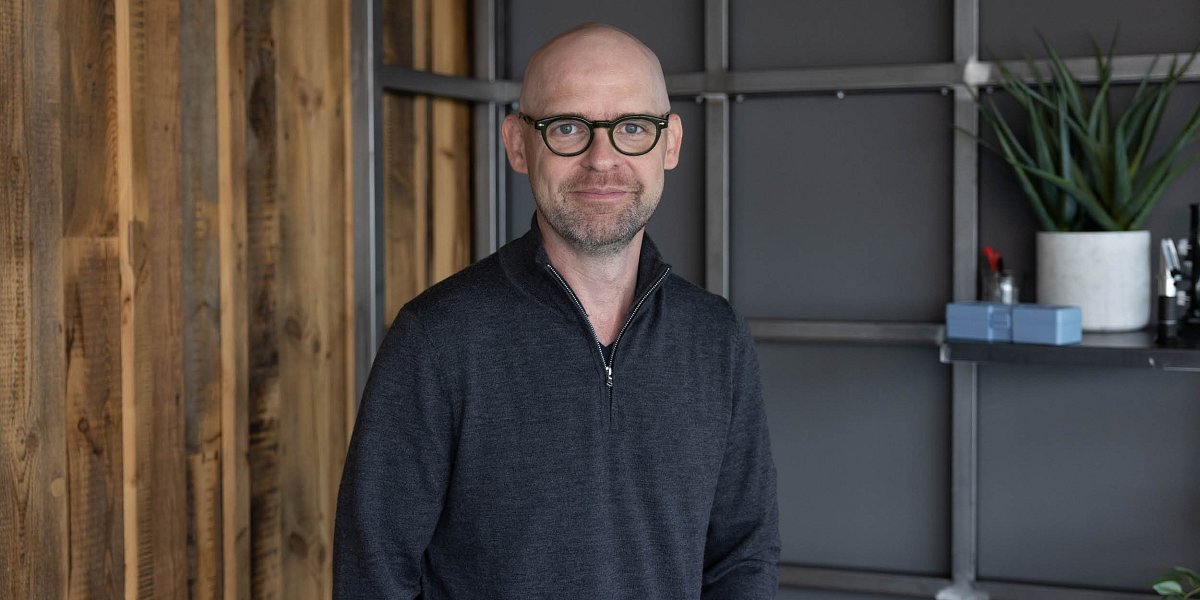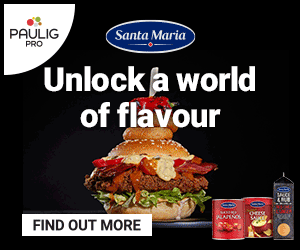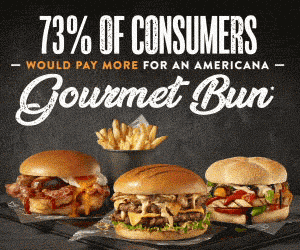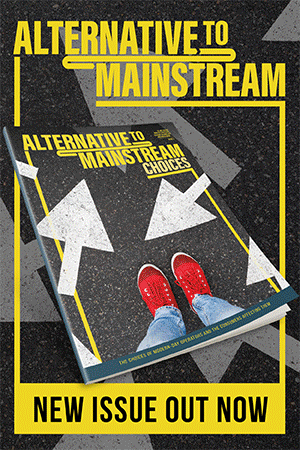Interview: David McDowall, Stonegate Group
One year after taking over the biggest pub company in the country, David McDowall talks to Tristan O’Hana about debt, strategic pillars and the comparisons between BrewDog and Stonegate.
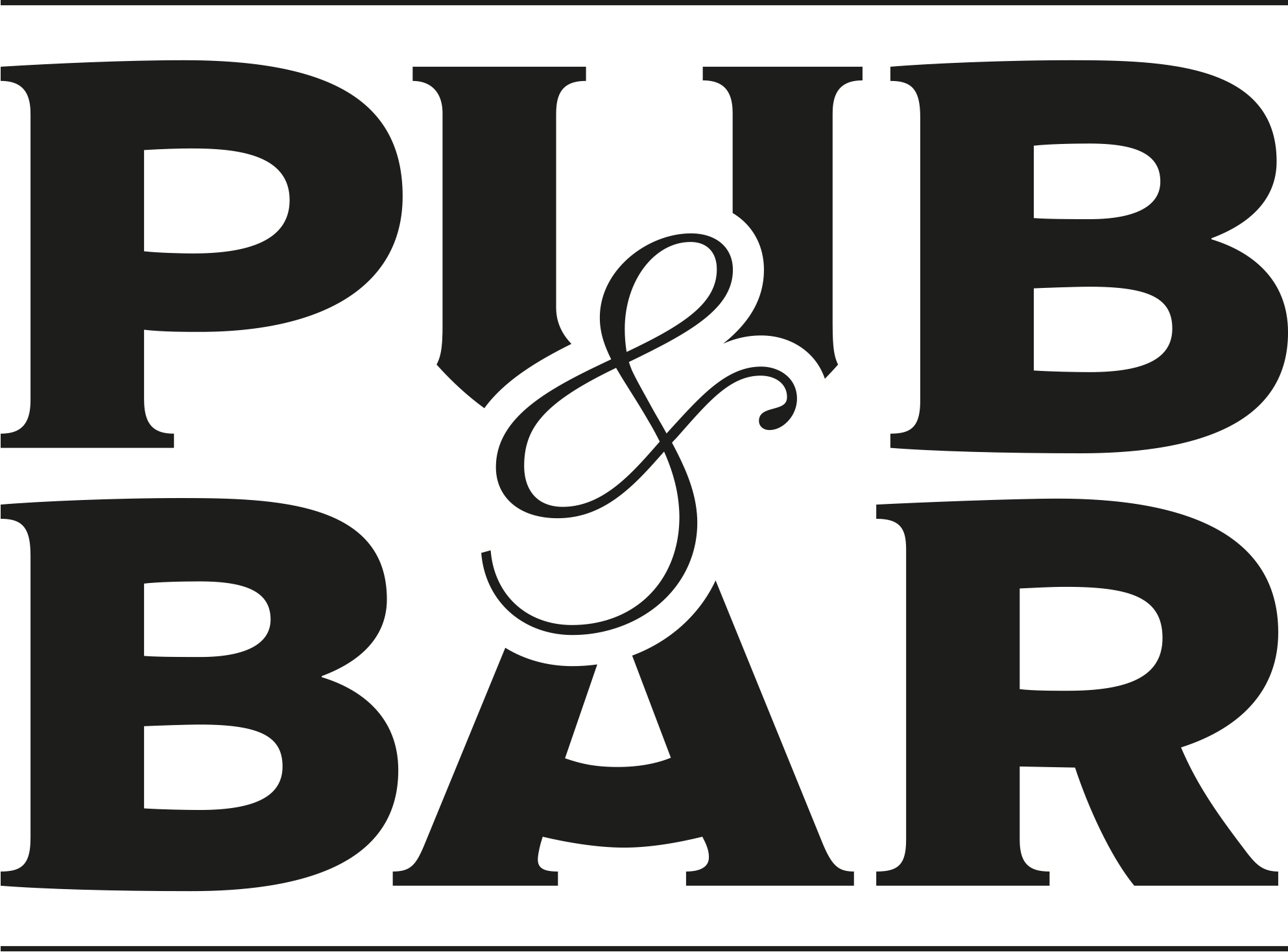
I confirmed my interview with David McDowall, CEO of Stonegate Group, in September 2023. While multiple outfits jostled for a chat with the man of the moment at the beginning of the year – when it was confirmed that he would leave his post as COO of BrewDog to succeed Stonegate’s Simon Longbottom – we knew that, really, there would only be so much to say at the start of such a monumental transition. So, last autumn, I set about making plans to talk to McDowall on his one-year anniversary in the post. As we know, a lot can happen in 12 months.
In fact, a lot can happen in four. In the months between confirming our interview date in January and actually sitting down to carry it out, Stonegate spent some considerable time in the headlines, namely due to a £638m refinancing deal in relation to 1,034 pubs in its circa 4,500-site estate. Then, just days after the interview took place, union GMB issued a press release stating that more than 4,500 Stonegate pubs could be at risk, as parent company TDR Capital seeks to refinance £2.5bn of debt. Many within the industry saw this content as misleading, but it certainly did the rounds in the national press. Despite having hundreds of questions for McDowall about myriad topics, this was understandably unavoidable when we spoke last month. I asked a fellow industry journalist what she would ask him if she had an hour of his time. Her answer: What’s the plan?
“Well, first of all, I think it’s important that everyone recognises that, alongside our investors, we have a clear plan and we’re under no significant time pressure to refinance our debt,” he says calmly from a Stonegate site in London’s Marylebone. “We have some maturities in summer 2025 that we need to address, but we’re confident in our ability to refinance at the appropriate time.
“We’ve always been looking to maximise value from the estate. So, if we see an opportunity to create some value, for example, through some select disposals, then we’ll do that and we’ve always stated that. We’re confident that what we have is a pathway to deliver further profitable growth for the organisation and [refinancing in] December was a really important step in achieving some of our long-term balance sheet goals. The good thing was that was the result of a pretty competitive process with a material amount of interest. We’re pleased with that in terms of it being an important step in the medium- to long-term plan. Meanwhile, priority number one is to continue to focus on the trading performance of the organisation.”
Big shoes, big changes
The trading performance of the organisation – it sounds so simple, doesn’t it? But let’s break it down. You go from overseeing a bar estate of around 100 sites, all loyal to the same brand/concept, to assessing and adjusting the operations of over 4,500 properties made up of multiple managed, leased and tenanted, and commercial agreements. What’s more, you’re stepping into the shoes of a widely respected outgoing CEO, there’s a mountain of debt and, oh yes, the chairman, Stonegate’s founder Ian Payne, has now retired and left the board, with the industry still waiting to hear who’s next in line. So, David, where on earth did you begin?
“On day one there were three priorities,” he says. “Priority number one was to meet as many people in the business as possible. Number two was to use that time with our people to understand the business as well as I possibly could. And then, thirdly, to think about how we develop the business together. Meeting all of those people was key and I threw quite a lot of time and energy into that over the first 12 months. I visited over 500 of our pubs, bars and venues around the country, speaking to talented managers, operators and publicans, and that’s really informed so much of the revised strategy.”
Throughout the early stages of the interview, McDowall remains on script when it comes to strategy – these are clearly messages he not only believes in, but ones he has spent the last year talking about day in, day out. Again, while those three priorities can be listed nice and simply, the complexities and efforts within each one could fill the whole of this magazine. To name a few, though, when he started the role, he launched a monthly ‘open door’ session in the office and online, where anyone in the business can book a five-10 minute slot to talk about anything they want. They also set up an ‘Ask David’ email inbox, where people can send thoughts, ideas and queries. The phrase ‘can of worms’ springs to mind…
“It was pretty busy to begin with,” he says through a smile. “I think that we’ve probably settled down a little bit because hopefully there are quite a few avenues for people to communicate. We also launched a thing called the Stonegate Think Tank, which is an innovation forum that I chair on a quarterly basis where we take people from all different levels and parts of the business and ask them to contribute thoughts and ideas from the frontline. We also stress test some of the new things that we’re working on across the business.”
All of those initiatives (and more) have helped McDowall and the team arrive at the new mission and strategic pillars of the Stonegate Group. It’s mission? Bringing people together through its passion for great pubs, bars and venues. The pillars? Offer the warmest welcome to every guest; always look after the team, as they make the difference; always strive to improve and innovate; position every site for success; and promote safety and efficiency.
“Everything that we do right now sits underneath those priorities,” he says. “And all of that led to the potential that we saw to further improve the financial performance of the business with a set of quite real and exciting initiatives.”
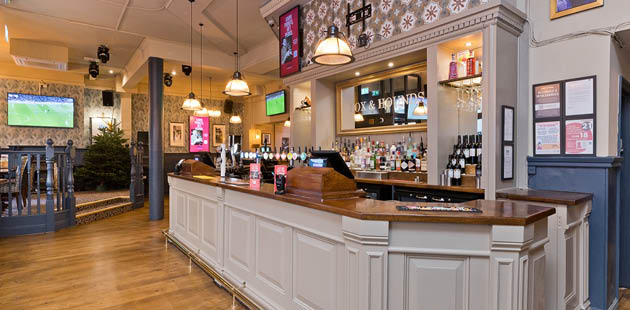
Stonegate site The Fox & Hounds, Putney
Asset optimisation
When McDowall took the reigns of the UK’s largest pubco in February 2023, he spoke publicly about his excitement around utilising tech and data when it came to making changes within Stonegate’s estate, be they wholesale or wholesome. One year on and he has clearly done just that. The aim is to make sure that the right format is being used in the right pub and he sees the number of operational options within Stonegate’s estate as a big advantage – if one model isn’t working, who’s to say another won’t?
“Over the last 12 months, we have used data, insights and analytics to help categorise the estate through our understanding of demographics in the area, of historic performance, of the competitive set, and of how guests and consumers behave from credit card data and EPOS data.
“We have tried to take as much of a data- and insight-led approach to that asset optimisation process as possible. It is yielding some really good results thus far, because we have evolved the strategy. So, for example, we’re doing quite a few managed to Craft Union switches or managed to L&T transitions, and we haven’t really done those in the past. The ROI results are pretty impressive and we’re only at the beginning of that strategy, which should give us some real confidence for future performance. It’s almost taking the emotion out and thinking about what the data tells us – is it the right format, the optimal format for the guests, and, frankly, the most profitable option for that site?”
Alongside that, McDowall says there has been a lot of other operational improvements, including working on pricing, digital media, procurement and commercial, as well as quite a significant internal structure change.
“We have driven a material amount of change over this 12-month period and I think we’ve only been able to do that because of that early stage approach of connecting with as many different people and parts of the business as possible,” he says.
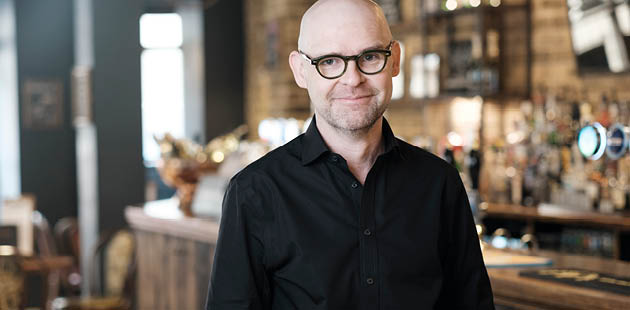
Chief executive officer David McDowall
A punk CEO?
And there’s the elephant in the room, or the stuffed squirrel, or the fake gold can, or whatever marketing drive BrewDog is currently on. I’m almost embarrassed to begin quizzing McDowall on the comparisons between his former employer and the business he now sits atop of, so obvious that line of questioning is, but with the contrasts between the two set-ups being blindingly glaring, how could I not? He laughs a laugh that tells me he knows this topic will be with him for some time to come.
“I guess I’ll start with what is similar,” he says. “Although Stonegate is as a much larger business, there are some elements of the culture that align with BrewDog. We’re still pretty entrepreneurial in spirit and a lot of that comes from Ian’s mindset and TDR’s mindset that we should continue to be restless and ask what’s next. And I do think, hopefully, that they thought by bringing someone in with my background that we could amplify that a little bit. It was clear that Ian and TDR wanted to take the opportunity to think about the business and how its strategy should evolve. I felt that was pretty clear simply from the fact that I was in the running for the role, because I’m a different type of leader with a different type of background.
“I think that our scale and resources should be reasons for us to go faster and be more innovative, and not reasons for us to be more cumbersome and not move at pace. A lot of what I’m trying to do is to engage and encourage our team to think differently, to welcome fresh thinking and perspectives around every issue. Even though we’re a reasonably large business, we should still move at pace and we’re seeing some success in that. I think some of that spirit was ingrained in me from my time at BrewDog.”
Sticking on the craft beer vs Craft Union subject, I admit that I thought of McDowall when writing up the news that, from spring this year, Carlsberg Marston’s Brewing Company (CMBC) will become Stonegate Group’s new logistics partner, managing all keg and cask deliveries to its managed estate. The agreement will also increase the stocking of CMBC’s beer portfolio across those outlets. After leading a business that once made a public display of removing a craft beer brand from its bars after it was bought by a larger brewery, does he feel conflicted at all when penning these types of deals?
“At BrewDog, I was running a business with a very clear vision and raison d’etre, with a very clear target demographic and strategy,” he says. “And then you go and run a different type of business with a different strategy, different guests, different consumer demands. I have no issue whatsoever with making the right commercial decisions for the pubs that we operate at Stonegate, and it’s as simple as that. Let’s face it, the scale is different, right? So [the CMBC deal] was about finding the right partner to deal with the scale of our organisation and the scale of the estate. Most importantly, it’s about the demands of the guests and consumers that frequent that estate. I’ve no issue with that and I’m pleased with the deal that we managed to do with them as important strategic partners.”
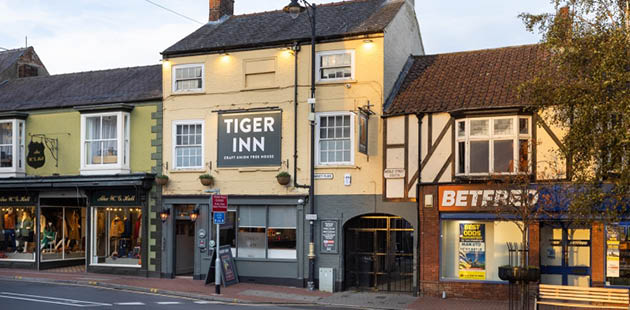
Stonegate's The Tiger Inn, Driffield
Closures and wants from Westminster
At the time of our meeting, celebrity chef Simon Rimmer had just taken to social media to announce the forced closure of his Manchester restaurant Greens after 33 years in business. While Rimmer’s site was just one of many to go over the past year, there was something about that address, and the fact such an established outfit couldn’t cope with the current climate, that made waves beyond the hospitality industry – more people were paying attention to the devastating storms this sector is having to weather. While McDowall agrees that closure figures were becoming more than another headline, he deflects the subject in relation to Stonegate shutting doors and leans once again into a positive asset optimisation angle.
“Our strength is in our diversity,” he says. “We have an ability to say that a site might not work as a particular high street model, but it might work as leased and tenanted or operator-led. That transition and conversion strategy that we talked about earlier, as well as maximising income, helps us avoid closing pubs by getting the right pub into the right format.
“We were reviewing our leased and tenanted estate in an exec board meeting recently, and we noticed the number of people who have decided to leave their pub is significantly lower than this time last year. Plus, our number of applications to operate a pub, whether that’s Craft Union or leased and tenanted, that week was the highest week that we’ve ever had for applications. It feels like there’s still a healthy amount of appetite out there to consider running your own pub. I think it’s just really important that the sector, supported by government, creates an environment in which those businesses can succeed in the medium and long term.”
What of government then? Does McDowall have the same wish list as everyone else in the industry? Kind of, yes. But he sees it as a two-way relationship – Stonegate has to maintain a dialogue with Westminster to showcase the role it plays in communities across the country and, in turn, the government has to take note and take action to protect that position.
“At Stonegate, we are passionate about pubs and about the role that they play in building safe, cohesive and collaborative communities,” he says. “We’re firmly of the view that the role of that local pub can’t be underplayed and is key to our purpose. We hope to do our part, to make the case for our industry to this government and whichever government is in place by the end of the year.
“I was pleased with the business rates relief news and with the freezing of the multiplier, which had an impact on many of the pubs in our leased and tenanted estate in particular. We all know that everyone’s running costs are at completely unprecedented levels. But it feels like we need to see more and longer-term support to try and overcome some of the unique obstacles presented over the past three years.
“I’m a firm believer that VAT is a conversation that needs to be had – a reduction of VAT for the trade. Alongside that, I still believe that there needs to be fundamental reform of the business rate system. Alongside that, I would add it’s important that we step back and reform the Apprenticeship Levy system as well. Those feel like the three most important themes.”
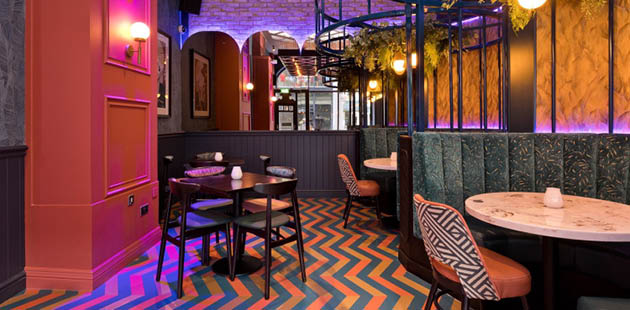
The new-look Slug & Lettuce, Deansgate
Plans for the brands
There’s no doubt that McDowall has information and plans for Stonegate’s future that he was never going to share with a trade journalist and tens of thousands of Pub & Bar readers – we can keep a secret, right? He remains tight-lipped on the search for a new chairman and, as you’ve read, diligently on message when it comes to Stonegate’s debt. So, as our conversation draws to an end, I ask what other plans he can reveal. He talks a lot about utilising the various models within the estate – perhaps he could elaborate on that?
“We’re really pleased with the performance of Craft Union,” he says. “We’re at 560-something now. That should be closer to 650 within the next nine to 12 months or so. We still see significant growth in that community wet-led model. Those are trading really well and had a very good Christmas.
“There’s a lot of discussion around high street and late night at the moment, isn’t there? We are super pleased with Be At One, which has just had a really strong Christmas trading period and has consistently been in strong like-for-like growth for the last few months. We’ll continue to look at further opportunities to grow that brand.”
Then there’s Slug & Lettuce. In September last year, Slug & Lettuce reopened a site in Deansgate, Manchester, following a £680,000 investment. At the time, Stonegate said that the new look signalled the evolution of the brand. So, there are more to come?
“We have signed off another two,” says McDowall. “Brindley Place in Birmingham and Solihull. We’re also working on a number of other initiatives at Slug & Lettuce, including new external, signage, presence and so on. We think that there’s a really positive 12 months ahead for the Slug & Lettuce brand as well.
“Overall, one of the things that I’m incredibly keen for us to do is to make sure that brands and formats stay relevant,” he concludes. “We’ll make incremental moves and nudge them in the right direction, taking the opportunity to stay really close to the guest and to what’s happening in the areas that we operate in, plus watching what our competitive set is doing. This is really important. You’ll see lots of bits of continual evolution of our brands and formats, but Craft Union, Be At One and Slug & Lettuce are three that spring to mind that have got a very positive next year or two in front of them.”
Let’s see what the next 12 months bring.



